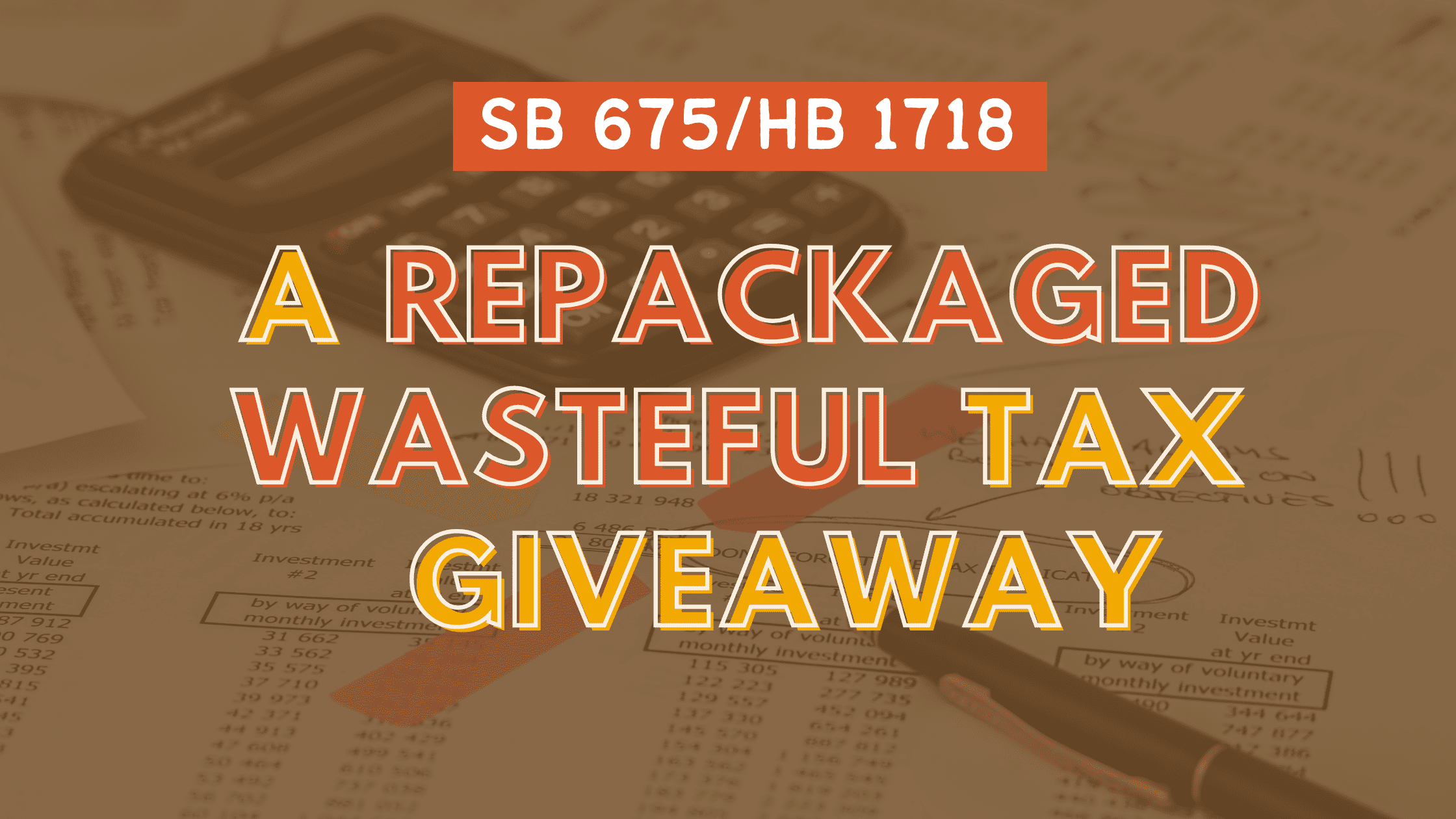Even after the current “once-in-a-lifetime” projected cash balance has been spent, Texas will still need sufficient revenue to provide education, health care, transportation, and other critical services for Texans across the state. But the Legislature is once again considering a flagrant tax giveaway that would drain future state resources.
SB 675 by Sen. Springer and HB 1718 by Rep. Ashby would give up to $300 million in insurance tax credits to venture capitalists promising to make investments in small businesses, a program generally known as CAPCO. The state would hope to receive an indirect return from tax revenue generated by supposed new economic activity, although this pipe dream has failed to come true in states that have created similar programs. Prior Texas CAPCO programs, implemented in 2005 and 2007, were criticized by then-Comptroller Susan Combs and then-Lt. Gov. David Dewhurst as poorly structured and wasteful.
This session’s bill is a repackaging of HB 570 — a failed attempt to establish a similar tax break in 2021 and one of many related bids rejected by the Legislature every session since at least 2011. Longstanding criticisms of similar proposals in Texas have pointed out how CAPCO programs continuously fail to promote economic development. The current version is pitched as helping small businesses in rural areas recover from the COVID pandemic. Prior versions hooked into the memes of the day, such as federal Opportunity Zones or the New Markets tax credit program.
The bottom line is unchanged: a windfall for a few select investment pools.
This proposal lacks basic safeguards to ensure that Texas benefits from the investments receiving this special treatment. Only a handful of firms can even compete for these credits due to oddly specific requirements for certification. Since approval for credits is on a first-come, first-served basis, the state cannot reject an applicant for any reason other than not meeting these narrow criteria.
This tax giveaway does not contain specific minimum targets for the number of jobs recipients of the tax breaks will create or the wages companies will pay. Such minimum goals are required in most other business tax incentives. Clawback provisions, which require repayment if key targets go unmet, are limited to cases where job creation falls below the estimates given by the recipient firms — an incentive for firms to set the lowest possible bar.
The bill would give the Legislature only one report on the effects of investments that tax giveaway recipients made, including only totals for the program — not numbers broken down by each individual fund, businesses benefitting, or location of specific job creation. The tax giveaway scheme would not be subject to audit or regular review and credits could be carried forward indefinitely.
Other states have similar tax breaks to encourage investments, but in some other states, the programs are much more competitive, efficient, and market-oriented. For instance, Maryland has auctioned off its tax credits, reducing the cost to the state. The state then invests the proceeds in firms that bid competitively for investments, rather than in a limited number of firms meeting pointlessly specific requirements. Finally, if the investments are successful, Maryland receives a substantial share of the profits. SB 675/HB 1718 would deliver nothing except an unenforceable promise of jobs.
SB 675/HB 1718 would commit the state to financing up to $300 million in wasteful, low-return tax credits to a limited group of special interests. Rather than enriching out-of-state shareholders and opaque venture capital funds, Texas can more efficiently aid small businesses through existing federal and state programs — such as the Governor’s Office of Small Business Assistance or the Texas Workforce Commission’s Skills for Small Business — or by insuring the portion of bank loans offered to small businesses that the SBA loan program does not insure.
Lawmakers should reject SB 675/HB 1718.
